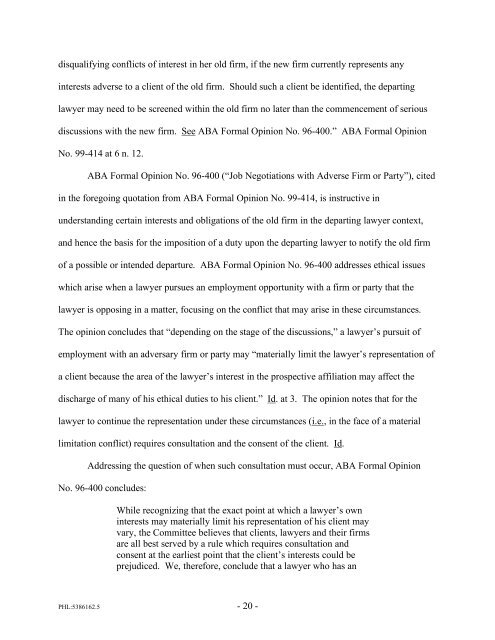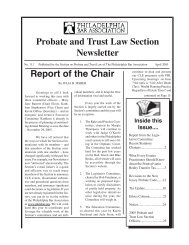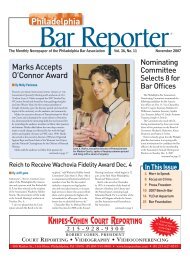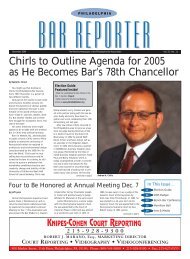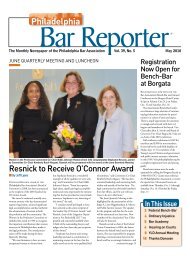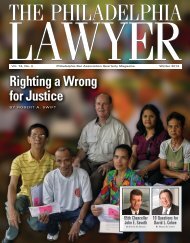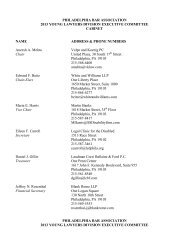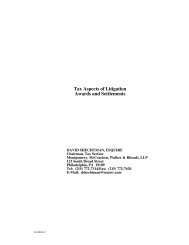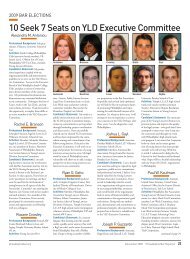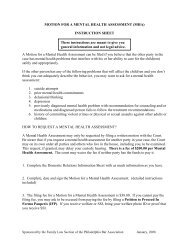here - Philadelphia Bar Association
here - Philadelphia Bar Association
here - Philadelphia Bar Association
You also want an ePaper? Increase the reach of your titles
YUMPU automatically turns print PDFs into web optimized ePapers that Google loves.
disqualifying conflicts of interest in her old firm, if the new firm currently represents any<br />
interests adverse to a client of the old firm. Should such a client be identified, the departing<br />
lawyer may need to be screened within the old firm no later than the commencement of serious<br />
discussions with the new firm. See ABA Formal Opinion No. 96-400.” ABA Formal Opinion<br />
No. 99-414 at 6 n. 12.<br />
ABA Formal Opinion No. 96-400 (“Job Negotiations with Adverse Firm or Party”), cited<br />
in the foregoing quotation from ABA Formal Opinion No. 99-414, is instructive in<br />
understanding certain interests and obligations of the old firm in the departing lawyer context,<br />
and hence the basis for the imposition of a duty upon the departing lawyer to notify the old firm<br />
of a possible or intended departure. ABA Formal Opinion No. 96-400 addresses ethical issues<br />
which arise when a lawyer pursues an employment opportunity with a firm or party that the<br />
lawyer is opposing in a matter, focusing on the conflict that may arise in these circumstances.<br />
The opinion concludes that “depending on the stage of the discussions,” a lawyer’s pursuit of<br />
employment with an adversary firm or party may “materially limit the lawyer’s representation of<br />
a client because the area of the lawyer’s interest in the prospective affiliation may affect the<br />
discharge of many of his ethical duties to his client.” Id. at 3. The opinion notes that for the<br />
lawyer to continue the representation under these circumstances (i.e., in the face of a material<br />
limitation conflict) requires consultation and the consent of the client. Id.<br />
Addressing the question of when such consultation must occur, ABA Formal Opinion<br />
No. 96-400 concludes:<br />
While recognizing that the exact point at which a lawyer’s own<br />
interests may materially limit his representation of his client may<br />
vary, the Committee believes that clients, lawyers and their firms<br />
are all best served by a rule which requires consultation and<br />
consent at the earliest point that the client’s interests could be<br />
prejudiced. We, t<strong>here</strong>fore, conclude that a lawyer who has an<br />
PHL:5386162.5 - 20 -


